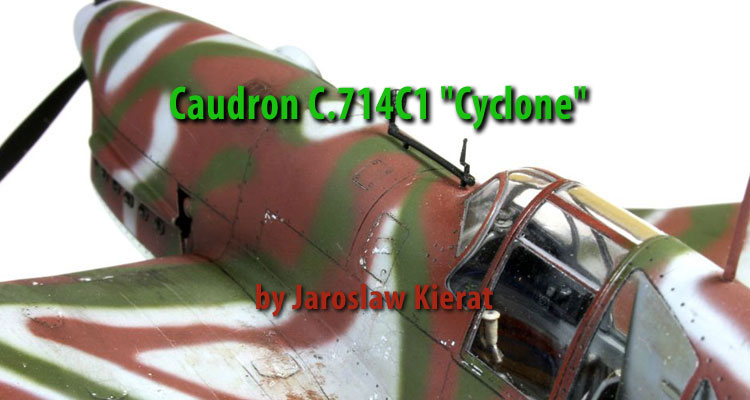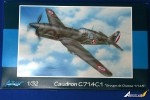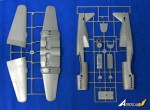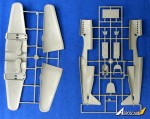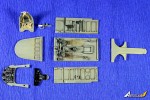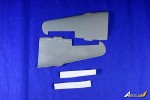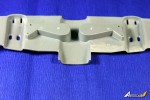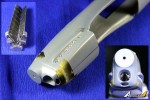1⁄32Caudron C.714C1
Historical background
The Caudron C714 is based upon a specification developed by the French military, which was proposing a very light aircraft, powered with a small engine. The idea was to generate a light-weight, low cost aircraft, produced from strategically non-critical materials.The Caudron C714 is based upon a specification developed by the French military, which was proposing a very light aircraft, powered with a small engine. The idea was to generate a light-weight, low cost aircraft, produced from strategically non-critical materials.
The basic design was introduced in the early thirties, and a prototype was proposed by Caudron in 1936. Caudron's experience in racing an record planes helped devising a small, mostly wooden, sleek low-wing, powered by the small Renault 12RO1 450 HP engine.
First machines were delivered to the military in 1939, but the concept proved not successful - while highly maneuverable, the climb rate of this type was disappointing, and coupled with a number of other design flaws, the C.714 was not introduced to French units.
Of the 100 ordered units 50 were sold to Finland, of which 6 arrived there. Polish exile army fighting in France in 1940 employed a few dozens of these planes with some success.
The kit
The kit is Azur's offering, which is a multi-media set, containing 4 basic sprues, one clear sprue, a number of resin details, and a small PE fret. The only bought extra was a set of Montex masks, which this time proved to be excellent.The quality of the kit was surprisingly good, in particular considering its short run origin. The kit is well thought trough, and correspondingly engineered, allowing from the start for example for deflected rudders or an open canopy. Elements, where sheet metal edges are visible, is locally tapered, to make it appear proportionally thick. In this scale, a few details need fine tuning, but more of this later.
The kit offers a number of variants, but most of them are quite similar, so I decided well into the build that it will be Boleslaw "Mike" Gladych's mount, the white 13, as it presented itself in May/June 1940 in Villacoublay.
Copyright ©2021 by Jaroslaw Kierat. Images also by copyright holder unless otherwise noted. The views and opinions expressed herein are solely the views and opinions of the authors and/or contributors to this Web site and do not necessarily represent the views and/or opinions of AeroScale, KitMaker Network, or Silver Star Enterrpises. Images also by copyright holder unless otherwise noted. Opinions expressed are those of the author(s) and not necessarily those of AeroScale. All rights reserved. Originally published on: 2012-03-16 00:00:00. Unique Reads: 4287




